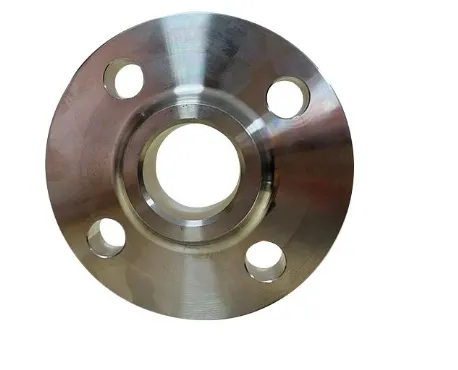-
Cangzhou Yulong Steel Co., Ltd.
-
Phone:
+86 13303177267 -
Email:
admin@ylsteelfittings.com
- English
- Arabic
- Italian
- Spanish
- Portuguese
- German
- kazakh
- Persian
- Greek
- French
- Russian
- Polish
- Thai
- Indonesian
- Vietnamese
- Zulu
- Korean
- Uzbek
- Hindi
- Serbian
- Malay
- Ukrainian
- Gujarati
- Haitian Creole
- hausa
- hawaiian
- Hebrew
- Miao
- Hungarian
- Icelandic
- igbo
- irish
- Japanese
- Javanese
- Kannada
- Khmer
- Rwandese
- Afrikaans
- Albanian
- Amharic
- Armenian
- Azerbaijani
- Basque
- Belarusian
- Bengali
- Bosnian
- Bulgarian
- Catalan
- Cebuano
- China
- China (Taiwan)
- Corsican
- Croatian
- Czech
- Danish
- Esperanto
- Estonian
- Finnish
- Frisian
- Galician
- Georgian
- Kurdish
- Kyrgyz
- Lao
- Latin
- Latvian
- Lithuanian
- Luxembourgish
- Macedonian
- Malgashi
- Malayalam
- Maltese
- Maori
- Marathi
- Mongolian
- Myanmar
- Nepali
- Norwegian
- Norwegian
- Occitan
- Pashto
- Dutch
- Punjabi
- Romanian
- Samoan
- Scottish Gaelic
- Sesotho
- Shona
- Sindhi
- Sinhala
- Slovak
- Slovenian
- Somali
- Sundanese
- Swahili
- Swedish
- Tagalog
- Tajik
- Tamil
- Tatar
- Telugu
- Turkish
- Turkmen
- Urdu
- Uighur
- Welsh
- Bantu
- Yiddish
- Yoruba

Nov . 30, 2024 06:43 Back to list
Understanding the en 1092 1 Standard for Flanges and Their Applications
The EN 1092-1 standard is a significant regulation in the field of industrial piping and flanges. This standard, established by the European Committee for Standardization (CEN), provides guidelines and specifications for the design and manufacturing of flanges made from various materials, including metal and plastic. EN 1092-1 plays a critical role in ensuring compatibility and safety in mechanical installations, specifically in piping systems used in a variety of industries, such as oil and gas, water treatment, and chemical processing.
One of the primary objectives of EN 1092-1 is to establish a uniform framework for the dimensions, tolerances, and testing methods of flanges, which helps facilitate international trade and ensure that components are interchangeable between different manufacturers. This is especially important in environments where piping systems are extensive and may involve components from multiple sources. The standard outlines specific requirements for the mechanical and physical properties of the materials used in flange production, helping to ensure that they can withstand the operational stresses they will encounter.
.
Another critical aspect of EN 1092-1 is its emphasis on the importance of proper flange sealing. The standard refers to various sealing methods, including the use of gaskets, which are essential for preventing leaks in piping systems. The choice of gasket material and the design of the flange play pivotal roles in the overall effectiveness of the seal. To address this, the standard provides recommendations on the permissible surface roughness, which influences the sealing capability and longevity of the connection.
en 1092 1 standard

Moreover, the EN 1092-1 standard includes guidelines for testing and certification processes, ensuring that flanges meet requisite performance criteria before they are put into service. Manufacturers are encouraged to conduct rigorous testing in accordance with the specified methods to validate the characteristics of their products. This not only protects end users from potential failures but also enhances the overall quality assurance in the industry.
Compliance with EN 1092-1 is not just a matter of adhering to industry norms; it also impacts safety significantly. Flanges that do not meet these standards can lead to catastrophic failures, which can result in hazardous leaks, explosions, or other dangerous incidents. Therefore, it is imperative for manufacturers and engineers to be well-versed in this standard to mitigate risks associated with unsafe components.
In conclusion, the EN 1092-1 standard serves as a cornerstone for the design and production of flanges in industrial applications. Its comprehensive guidelines promote uniformity, enhance safety, and facilitate international standardization, which is paramount in a globalized marketplace. As industries evolve and new materials and technologies emerge, the relevance of such standards remains crucial in safeguarding both the integrity of industrial systems and the safety of the personnel operating them. Adhering to EN 1092-1 is not merely about compliance; it is a commitment to excellence and safety in engineering practices.
Latest news
-
ANSI 150P SS304 SO FLANGE
NewsFeb.14,2025
-
ASTM A333GR6 STEEL PIPE
NewsJan.20,2025
-
ANSI B16.5 WELDING NECK FLANGE
NewsJan.15,2026
-
ANSI B16.5 SLIP-ON FLANGE
NewsApr.19,2024
-
SABS 1123 FLANGE
NewsJan.15,2025
-
DIN86044 PLATE FLANGE
NewsApr.19,2024
-
DIN2527 BLIND FLANGE
NewsApr.12,2024
-
JIS B2311 Butt-Welding Fittings LR/SR 45°/90° /180°Seamless/Weld
NewsApr.23,2024











